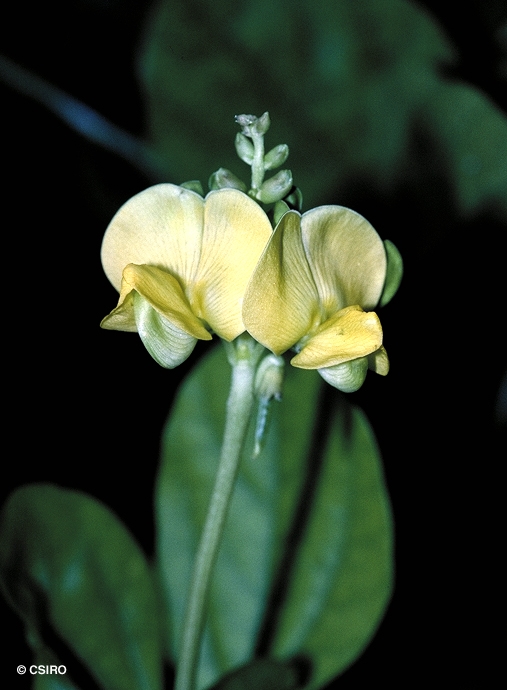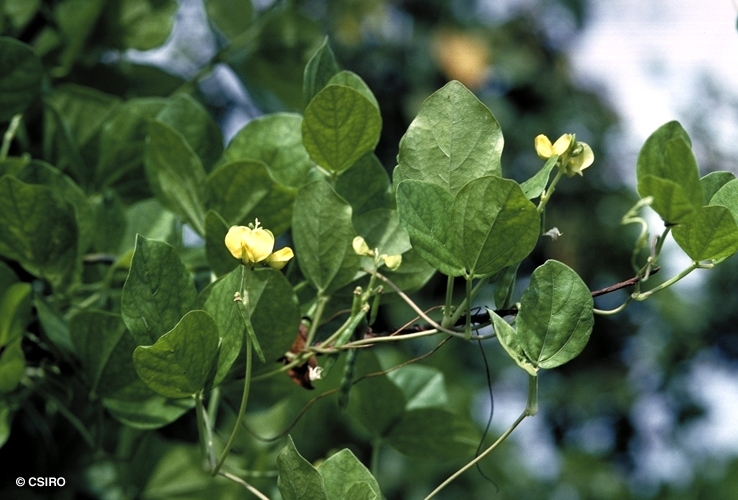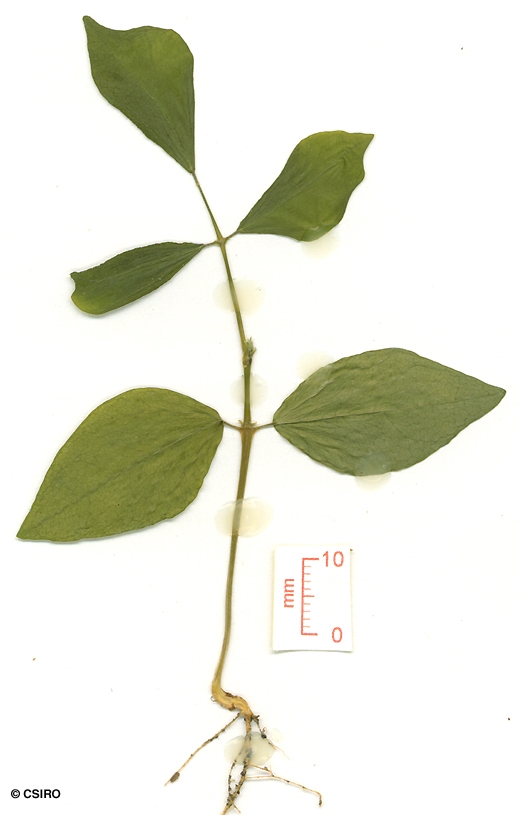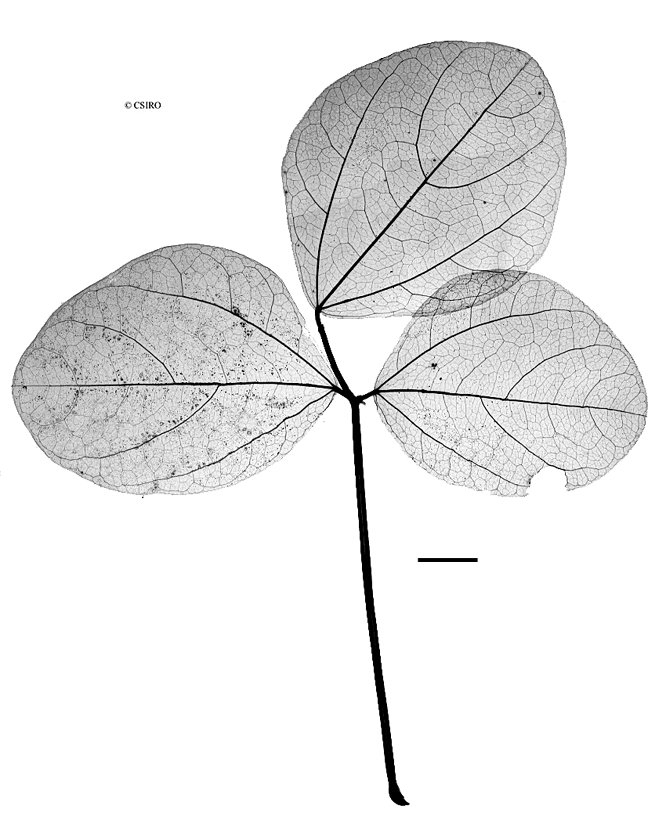Australian Tropical Rainforest Plants - Online edition
Vigna marina (Burm.) Merr.





Merrill, E.D. (1917) An Interpretation of Rumphius's Herbarium Amboinense : 285.
Cowpea, Notched; Sea Bean; Notched Cowpea
A slender vine not exceeding a stem diameter of 2 cm.
Inflorescence about 6-14 cm long. Calyx about 4-5 mm long. Petals: standard about 12 x 16 mm; wings about 12-13 mm long. Stamens 10, filaments of nine fused to form a tube open on one side, one stamen completely free. Ovary about 4-5 mm long. Style about 12 mm long, constricted at the base and bearded towards the apex. Ovules seven or eight.
Fruits about 30-65 x 6-7 mm. Seeds +/- globose, 4-5 mm diam., 3-7 per fruit. Cotyledons thick and fleshy. Radicle straight.
First leaves ovate to ovate-elliptic, apex acute to apiculate, base obtuse to cordate. Stipules present. Leaf blades 3-veined, glabrous on the underside. Third leaf trifoliolate, stipules present. At the tenth leaf stage: leaflet blades +/- orbicular, middle leaflet larger than the lateral leaflet blades, apex mucronate or retuse with a mucro, base shallowly cordate. Both the upper and lower leaflet blade surfaces sparsely clothed in appressed, translucent hairs. Stalk of the middle leaflet pulvinate and longer than the stalks on the lateral leaflets. Stipules cordate or peltate, about 3 mm long. Stipels present. Stem sparsely clothed in translucent hairs, stems twining. Seed germination time 8 days.
This species may have medicinal properties.
This species has been used medicinally in the Solomon Islands, Samoa and the Caroline Islands. Cribb (1981).
A species with some pasture potential in higher-rainfall areas; also recommended for stabilizing foreshores. Roots were roasted and eaten by Aborigines. Hacker (1990).





